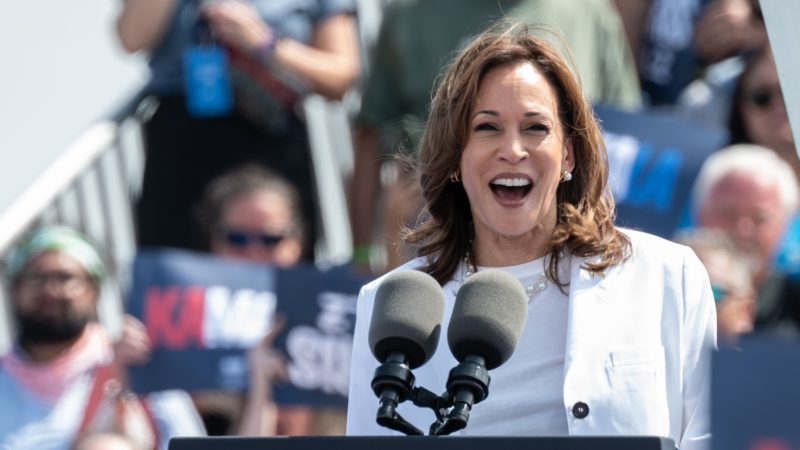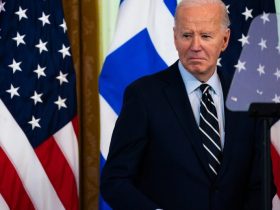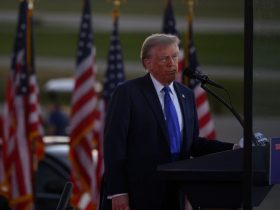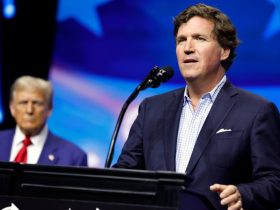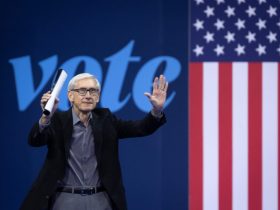Vice President Kamala Harris plans to outline in greater detail Wednesday an economic philosophy rooted in her own biography, attempting to contrast her vision with Donald Trump’s and win over voters in a crucial swing state who so far have viewed her skeptically on a driving electoral issue.
Harris, speaking at the Economic Club of Pittsburgh in what her campaign is billing as a major address, is expected to focus on the middle class, while also outlining the ways in which she views herself as a capitalist who believes there are limitations of what government can do, according to a senior campaign official. She will describe her economic philosophy as “pragmatic,” advisers say, stressing that her policies are practical and not “bound by ideology.”
Parts of the speech will highlight her personal history, pointing to past efforts in her career to partner with the private sector and outlining a middle-class upbringing that includes memories of her mother sitting late at night at their kitchen table, a pile of bills in front of her.
Those scenes, reminiscent of how President Joe Biden has long described his own middle-class upbringing, are designed to provide a contrast with Trump, who grew up wealthy and has made a career of showcasing his lavish lifestyle.
“For Donald Trump, our economy works best if it works for those who own the big skyscrapers. Not those who build them. Not those who wire them. Not those who mop the floors,” Harris plans to say Wednesday, according to campaign officials.
During the speech, The Washington Post reported Tuesday, Harris is expected to call for new federal incentives to encourage domestic manufacturing, according to two people familiar with her plans who spoke on the condition of anonymity to describe matters not yet made public.
Harris will point to Pittsburgh as essential to the rise of American manufacturing as well as the labor movement. She hopes to make a sharp distinction between her plans to spur production with targeted tax incentives and Trump’s plans to impose trillions of dollars in new tariffs, aides say.
It is unclear how specific Harris will get about her proposals Wednesday, but her advisers have eyed tax benefits to bolster advanced domestic manufacturing such as biotechnology, shipbuilding, semiconductors, data centers and clean energy production beyond the incentives in Democrats’ 2022 climate law.
Harris is also expected to express support for proposals to provide universal child care and support paid family leave. On Sunday, Harris signaled backing for cryptocurrencies at a fundraiser with New York City donors, but that subject is not expected to come up in her speech.
Reviving domestic manufacturing has been a key aim of the Biden administration, with hundreds of billions of dollars pumped into various industries through the Inflation Reduction Act and the Chips and Science Act, both of which passed in 2022.
Trump has also emphasized his intent to boost domestic manufacturing, but with a focus on tax cuts and trade restrictions. He has proposed trillions in tariffs to insulate U.S. firms from foreign competition and earlier this month proposed cutting the corporate tax rate from 21 percent to 15 percent on “companies that make their product in America,” although he has said little to define that plan.
Given the compressed nature of the race — Harris became the likely nominee in late July — her advisers acknowledge that voters know relatively little about her vision for the economy. While the vice president has rolled out a series of economic policies, her aides believe it is more crucial to persuade voters that she shares their broad values.
The vice president’s trip to Pennsylvania comes as polls remain tight in all the major battleground states. She heads to Arizona on Friday and Nevada on Sunday.
Trump has argued that his success as a businessman is proof that he can improve the economy for all Americans. In response, Harris has cited economists and other experts who endorse her economic plans.
On Tuesday, Mark Cuban, the billionaire businessman and Dallas Mavericks minority owner, gave his public approval to Harris’s policies and said Trump does not have a consistent economic philosophy.
“He says things off the top of his head that tend to often be ridiculous, if not insane,” Cuban said on a call with reporters, citing Trump’s plans for a 200 percent tariff on John Deere tractors and a proposed cap on credit card interest rates.
Cuban, who has endorsed Harris, acknowledged that many Americans remain deeply concerned about inflation. But he predicted that will change.
“Obviously when you go into a grocery store and everything is more expensive or smaller, it still strikes home, right? You still feel bad,” Cuban said. But he added, “I think over time, you know, the current prices, with inflation really moderating, will normalize, and people won’t feel that way.”

